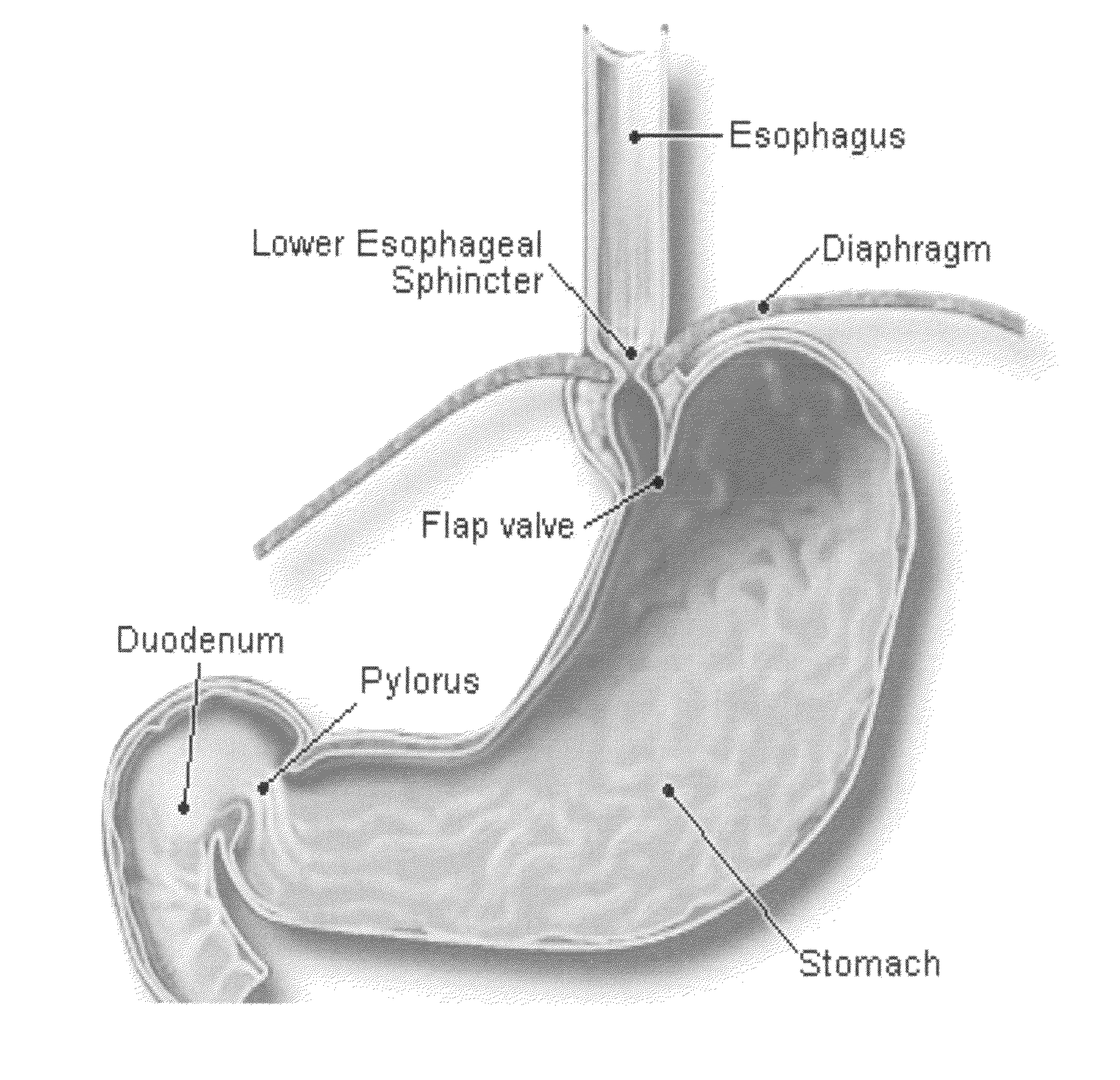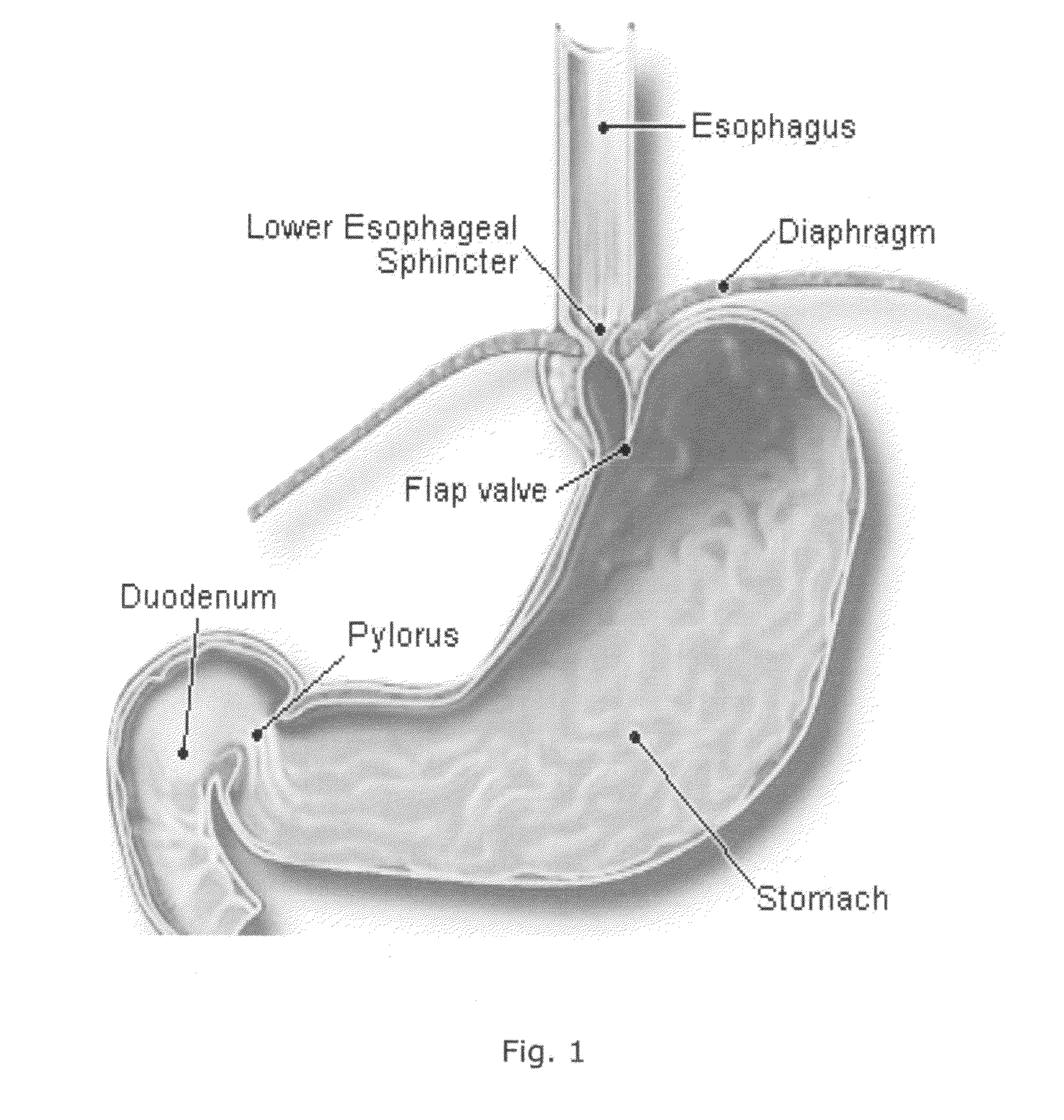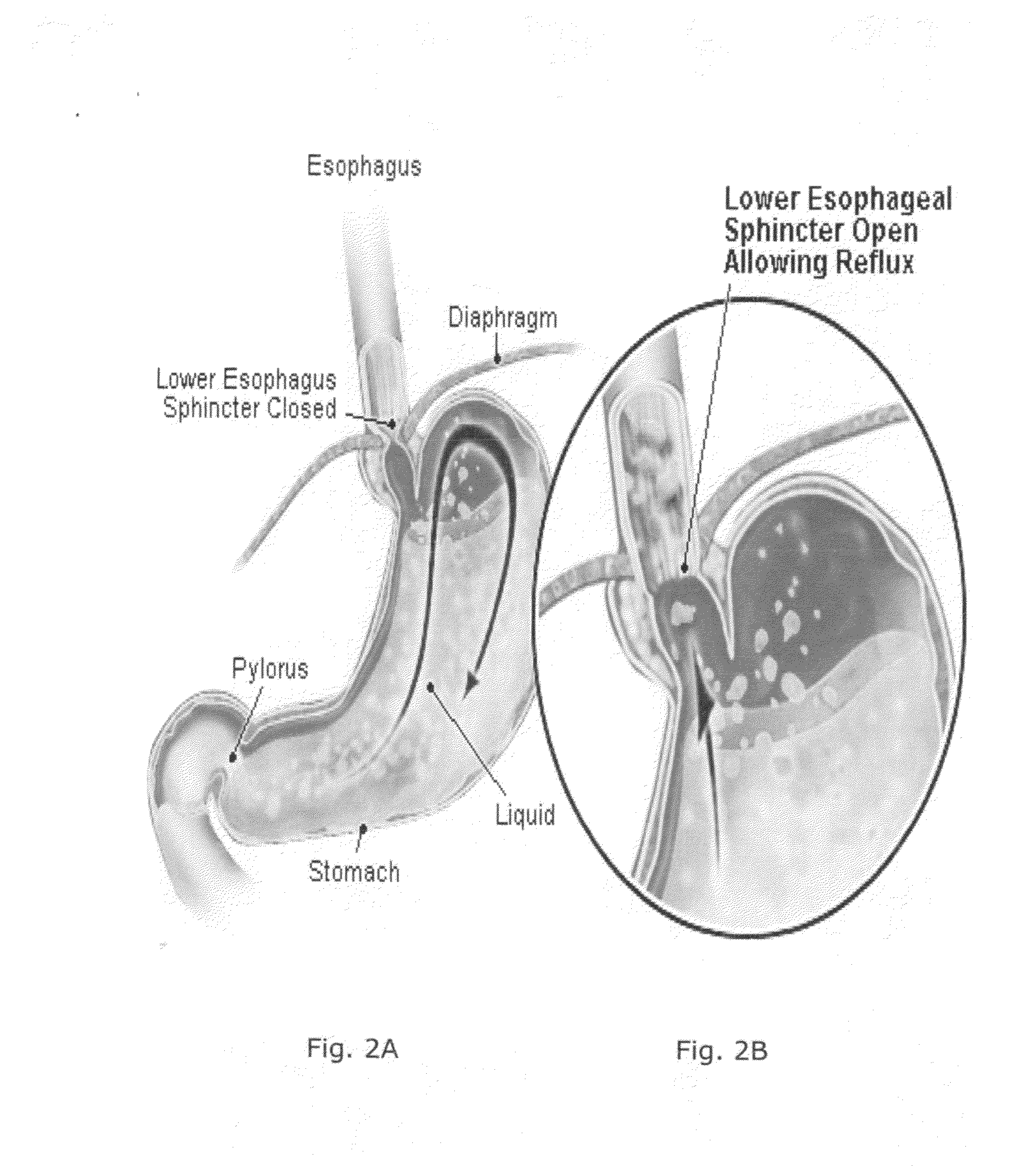The refluxed stomach liquids typically inflame and often can damage the cellular lining of the esophagus, although clearly visible signs of such
inflammation occur only in a minority of patients.
While an occasional heartburn episode may be common, some people have heartburn frequently.
Once regurgitation of the stomach liquids begins, the act of acid reflux usually is a life-long problem.
Unfortunately also, even after the esophagus has become healed by effective
medical treatment, when the
treatment regimen is ended, the underlying causes of acid reflux remain.
Thus, new and more serious injury to the esophagus will occur for most patients within a few months time after the
initial treatment has stopped.
Accordingly, gravity, mechanical
swallowing, and the
bicarbonate in
saliva are important protective mechanisms for the esophagus—but unfortunately, these mechanisms are effective only when the individual is in an upright position.
Consequently, any regurgitation or reflux that occurs at night is more likely to result in acid remaining in the esophagus for a much longer duration and to cause far greater damage to the esophagus.
Today, it is medically recognized that for a relatively small number of patients afflicted with GERD, these persons produce abnormally large amounts of stomach acid—but this is an uncommon cause and is not seen as a major contributory factor for the vast majority of GERD patients.
All of these, however, result in a failure of the LES to close properly, a condition illustrated by FIGS. 2A and 2B respectively.
A first kind of
abnormality is a weak contraction of the LES
muscle, which results in a partially open passageway and reduces the ability of the LES to prevent regurgitation.
These relaxations are abnormal in that they do not accompany swallows and they last for a relatively long time, up to several minutes in duration.
This defect results an easier opening of the LES and a greater upward flow of acid from the stomach into the esophagus.
However, they now do so at locations that differ from the normal; and the pressures generated by the LES musculature and the diaphragm is no longer additive.
Also, the pressure forces generated by the esophageal contractions may be too weak to push the acid back into the stomach.
The effects of abnormal esophageal contractions typically are worse at night when the patient lies prone, because gravity is not then able to help return refluxed acid in the esophagus to the stomach.
This slower speed for the emptying of the stomach is believed to prolong the distention of the stomach with food after meals; and consequently, the longer time required for emptying of the stomach prolongs that time period during when acid reflux is likely to occur.
Patients using antibiotic and anti-inflammatory medications routinely report difficult heartburn and severe sour stomach symptoms
after treatment; and also note in particular the occurrence of such problems after major
surgery, where the course of treatment with these antibiotic and anti-inflammatory medications is typically maintained for a significantly long duration of time.
If not treated properly, GERD may result in serious medical problems including
esophagitis (inflammation of the esophagus), stricture (narrowing) of the esophagus, esophageal ulcers (open sores on the lining of the esophagus) and esophageal bleeding.
Curiously however, although some people report that severe stress makes their heartburn symptoms worse, there is not as yet an established direct linkage between heartburn and stress.
Nevertheless, it is indisputable that stress can disrupt our normal living routines; and compels us to eat the wrong foods, or
smoke, or drink excessive quantities of coffee or
alcohol—all of which tend to trigger heartburn.
Stress also slows down the emptying of the stomach, which also increases the likelihood of heartburn.
Although some research studies suggest licorice may decrease inflammation, inhibit the growth of potentially harmful stomach
bacteria, and help with ulcers; to date, there have not been any formally conducted clinical trials on the use of licorice for heartburn or GERD.
Also aloe gel is not to be taken directly from the
plant as a remedy, as the gel can be contaminated with the latex.
PPIs are seen to be more effective than either antacids or H2 blockers, but have major side effects and are far more costly.
They, too, can be constipating if consumed in sufficient quantities.
Similarly, because no single
chemical agent is perfect for use, many
antacid formulations combine several types of ingredients to balance their respective side effects.
Lastly, although they have numerous advantages, PPIs are quite expensive.
However, all H2 blockers are recognized as being equally effective; and thus switching to another brand or formulation (if one fails to work) is likely to be fruitless.
Nevertheless, H2 blockers can produce some undesirable side effects, and therefore care must be exercised when taking such medication.
Particular risk is associated with the use of Prokinetic agents.
As stated therein, extensive anecdotal evidence and patient testimonials indicate that
apple cider vinegar provides temporary relief from the symptoms of GERD; but that the
ingestion of vinegar is difficult, if not impossible for most people because vinegar has a notoriously unpalatable taste and smell.
Some of these are demonstrably useful; others, however, are unfortunately at best ineffective and at worst act merely to aggravate the underlying
pathological condition.
Equally important, even the most effective treatments employed to date routinely employ chemically synthesized pharmaceutical formulations as the compositions of choice—all of which are known as being limited in acceptable dosage quantity, and become less tolerated by the
human body over
extended time, and also cause undesirable side effects for the user.
Consequently, all of the conventionally available compositions and treatments employed to date are far less than optimal medicinal regimens, and frequently are short-term treatments of severely limited duration and effect.
 Login to View More
Login to View More  Login to View More
Login to View More 


